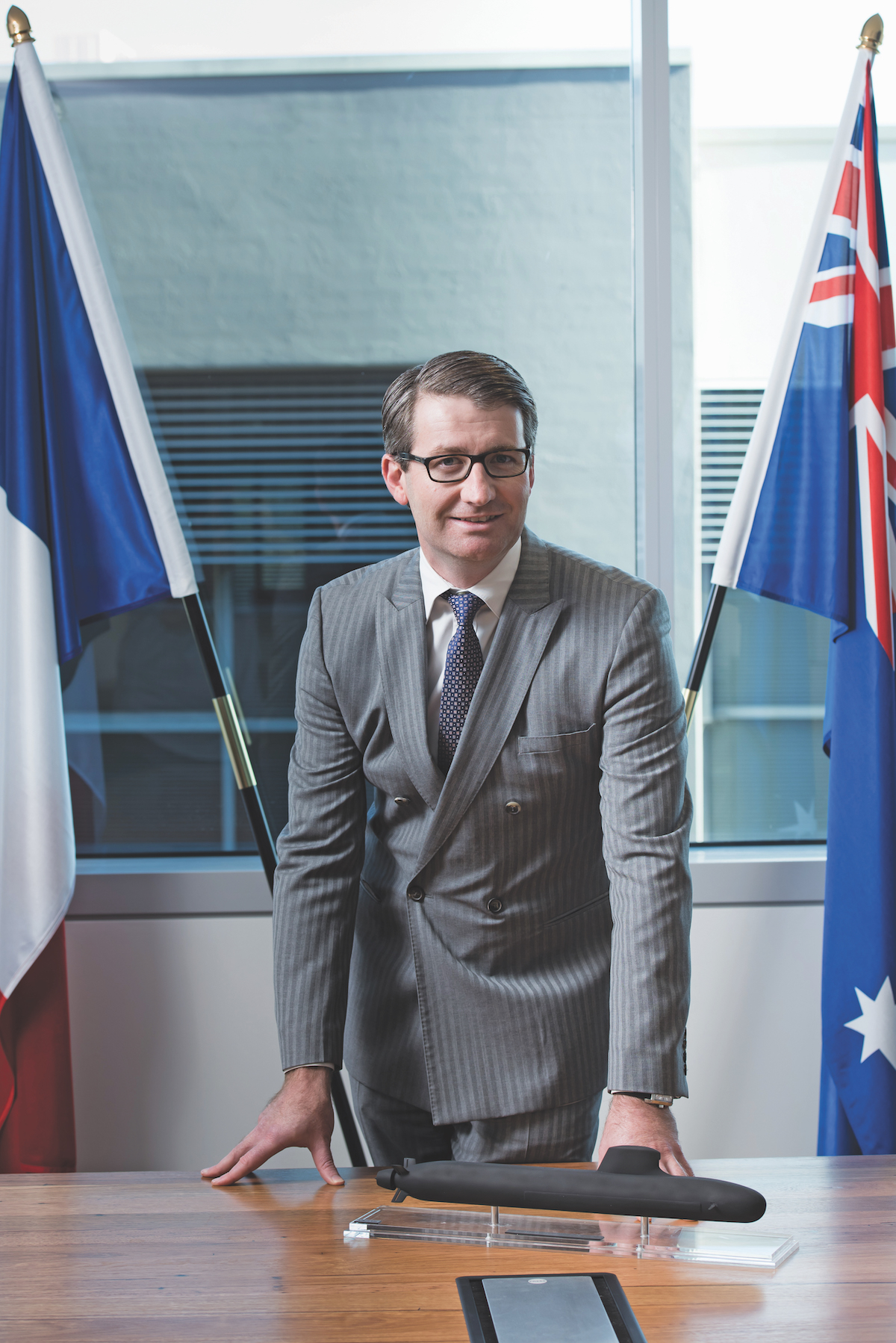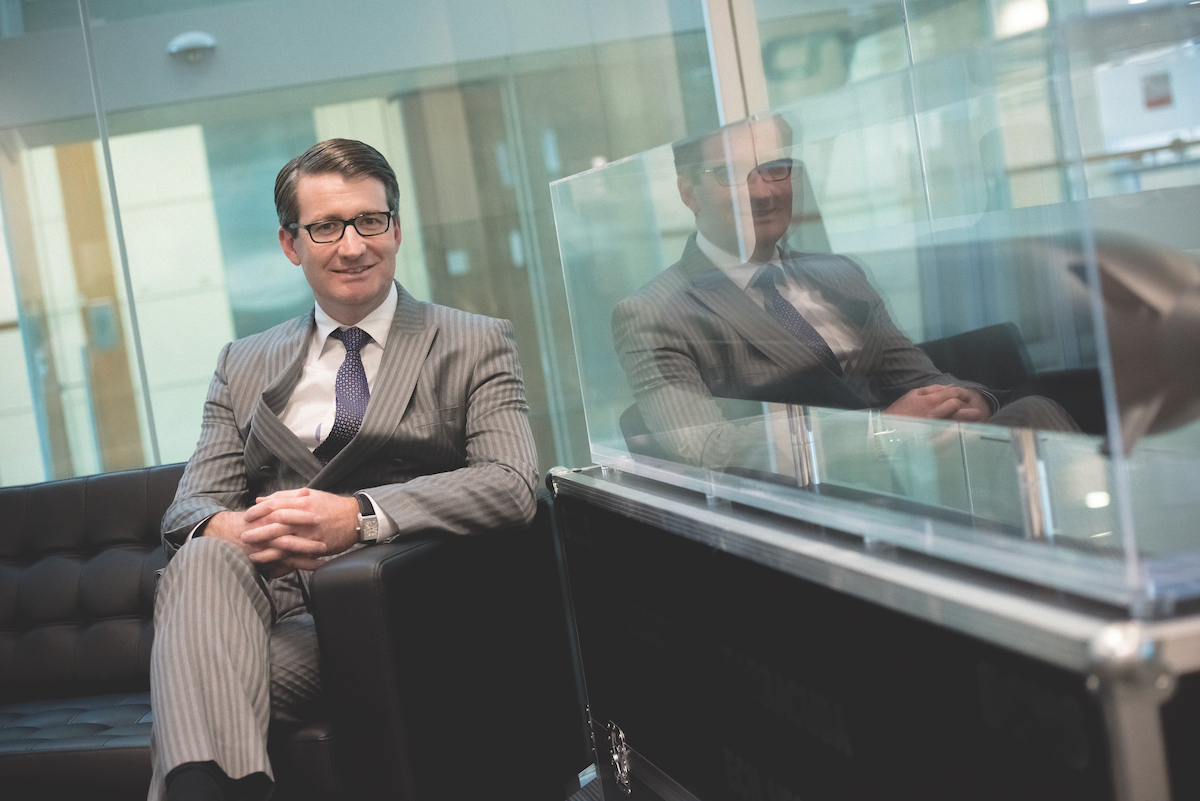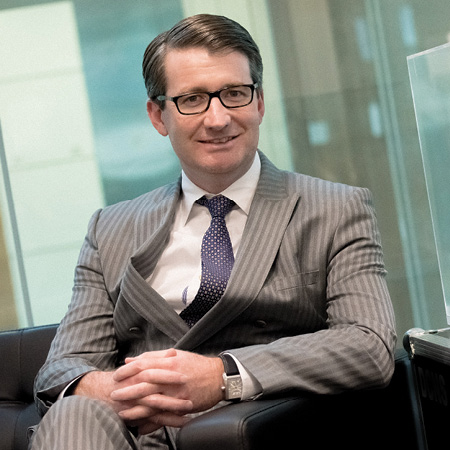Sean Costello, CEO of DCNS Australia, started his career in the navy as a qualified submarine officer. Over the last fifteen years, after leaving the navy and completing a Masters degree in commerce, he has worked in general management roles in the defence industries, and as a consultant.
“In that time I’ve also worked for the government in defence industry policy, general management at ASC (Australian Submarine Corporation) and in consulting roles around three key concerns: capability, development and acquisition,” says Sean.
With his commercial background, Sean spent four years working in a small consultancy, which he started with an engineering-focused business. It meant that he was quickly able to broaden his experience. “What I liked about working as a consultant was the ability to work with so many different companies,” he says. “I quickly learned a lot about how different companies work, how culture matters, how operating models matter and how management teams can approach their challenges.”
Approaching government as a customer
He says that this variety was valuable for gaining experience in approaching government as a customer — his practice specialised in this particular process, especially in the area of defence in long-term contracts.
After working as Chief of Staff to then Defence Minister, David Johnston, Sean worked as the CEO of the French subsidiary of DCNS Australia on the recent bid for the submarine building contract in Adelaide.
“DCNS is one of those special companies that has the capability to create an end-to-end solution, in this case creating submarines for Australia.” – Sean Costello
Under Sean’s strategic guidance, DCNS won the bid to construct the submarines in a contest with Japanese and German rivals and will build the new vessels in Adelaide.
Creating submarines for Australia
Of his move to the company, Sean says “I chose to work with DCNS because I understood that it’s one of those special companies that had, within the business, all of the capabilities needed to create an end-to-end solution, in this case creating submarines for Australia.”
He highlights that this is quite unique for companies in Australia, with most businesses specialising in one part of the process, such as design, construction, sustaining a product, or providing services to their clients. DCNS collects all these elements of the process and performs them seamlessly. In this case, that suits the needs of Australia.
“Submarines are ultimately strategic weapons of war and weapons of deterrence,” says Sean. “That kind of a business obviously takes place inside a much more complicated political framework where governments are involved.”

It’s this end-to-end delivery that Sean says means that DCNS is the perfect partner for the Australian Government, with its combination of engineering know-how, the industrial side of the business to build and maintain a fleet, as well as the “structure and governance of the business that knows how to work within a complex public sector.”
The business of technology and defence
The business of technology and defence requires constant innovation, and Sean says this is something that DCNS is constantly harnessing throughout the whole of its product. “We look for ever-improving performances of the whole submarine so that we know we can deliver not just today, but well in to the future,” says Sean. “Innovation helps us design the highest performing submarines and create the industry to look after the submarine.”
The idea of innovation is also something the CEO applies to his business practice, being eager to grow DCNS. “In Australia, DCNS will continue to invest and grow to become what I would describe as Australia’s submarine company,” he says. “It would be operating within a broader naval industry and be a leader within the Australian economy at large given the sheer size of the future submarine program.”
Operating as a defence supplier naturally means a close relationship with the Australian Government, and Sean is cognisant of the fact that DCNS needs to nurture not only this relationship, but those with other companies and suppliers as well.
“DCNS is what we call a ‘systems integrator’ — we bring together the talents and competencies of countless other companies,” he says. “More than half of DCNS’s revenues flow into other businesses. Those other businesses not only provide us with support for the program but also need to be broader and stronger so we’re drawing on the best.”

This is particularly true of the defence industry, where there’s so much at stake — from funds supplied by the government to the lives of the naval officers who will go on to eventually crew the submarines. This requirement has affected the company culture at DCNS, a fact that’s reflected in its high regard for customer success.
A trusting relationship with the Department of Defence
This, in turn, results in an intimate and trusting relationship with the Defence Department. “We exist in Australia for a strategic reason: to make sure the Australian Navy has the best submarines, supported by a capable industry,” says Sean. “That means everything we do and think about — the way we act, communicate and behave — is always geared towards fostering and developing a stronger navy and a more prosperous Australia.”
Sean isn’t letting his base in Adelaide translate to a limit on the scope for DCNS in Australia, with plans to expand already in the works.
“Culturally, we are developing as an Adelaide company, working in a national industry,” he says. “Our offices and workforce are developing in Adelaide but our supply chain, research and development and innovation network is developing right through the whole country. Some people might think we are just going to be an Adelaide company and that’s not correct. We are based in Adelaide, working around Australia.”

